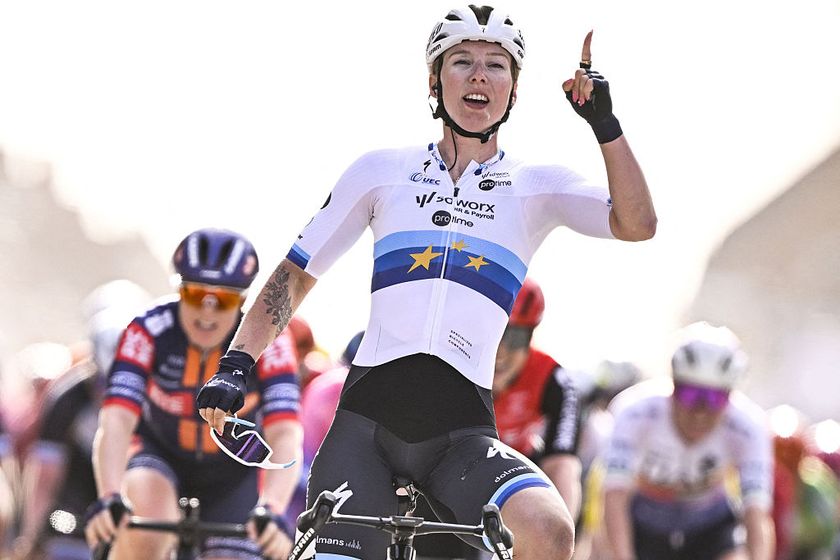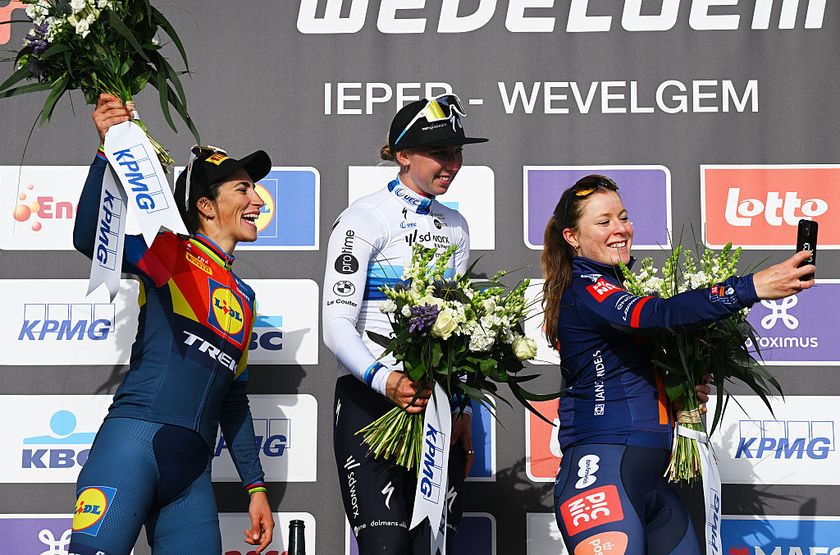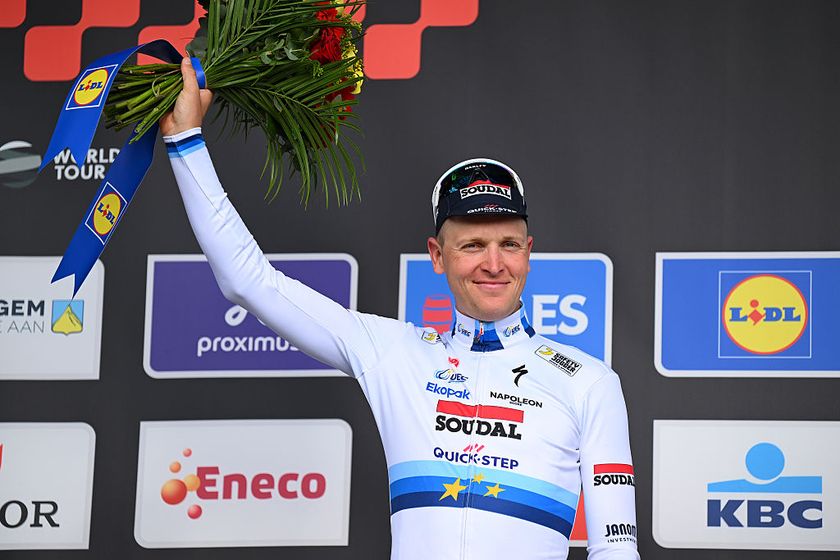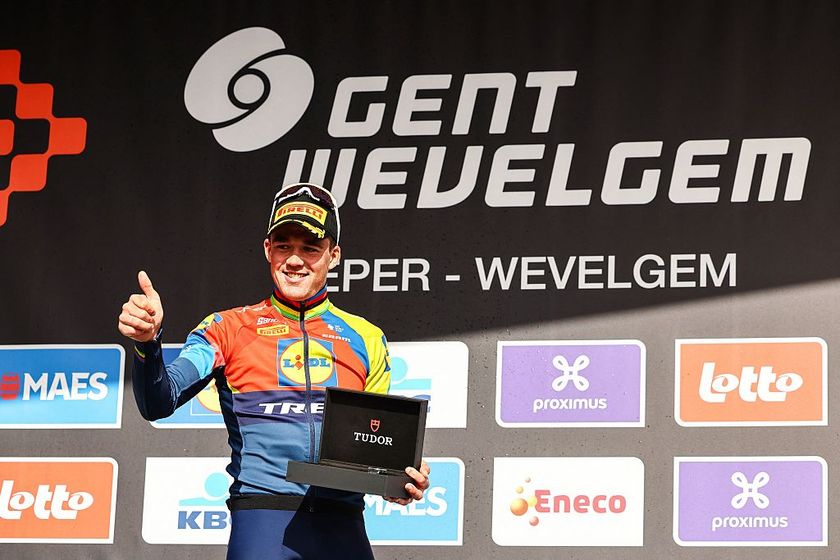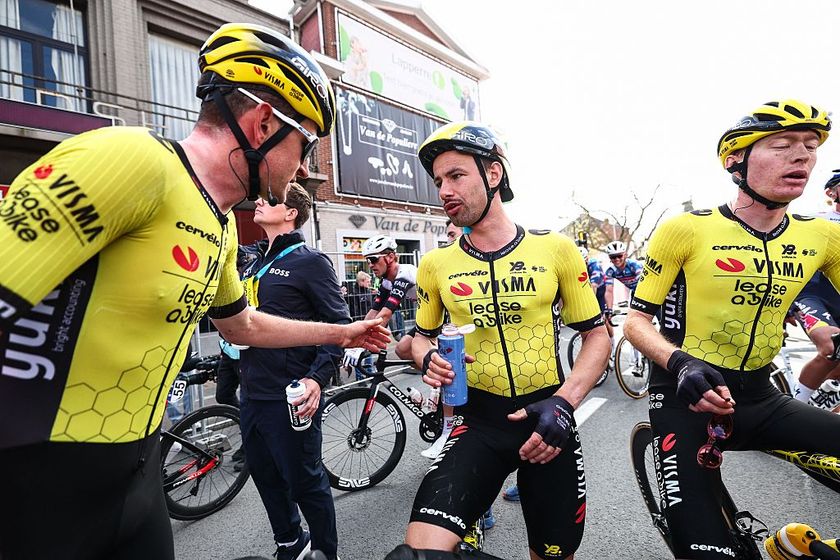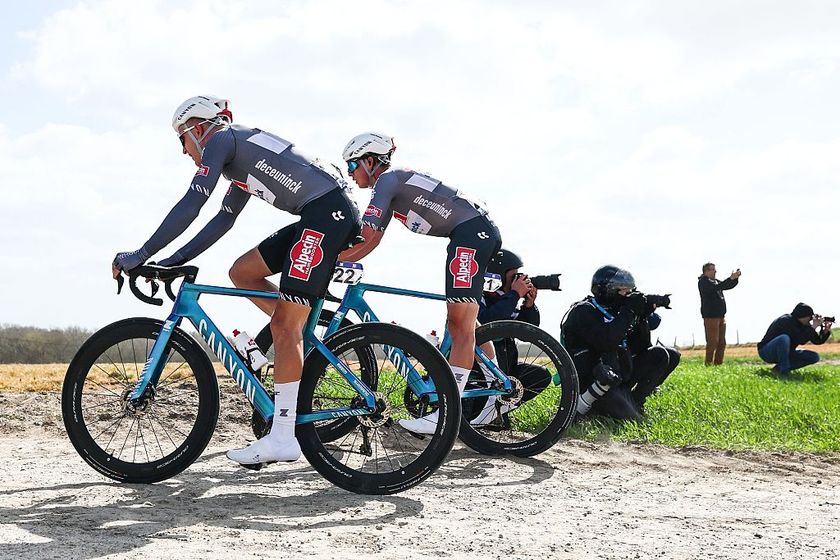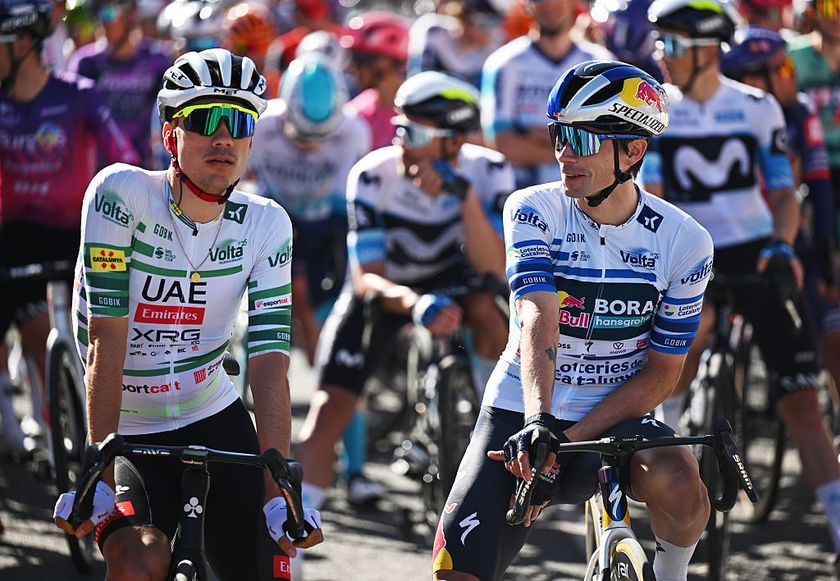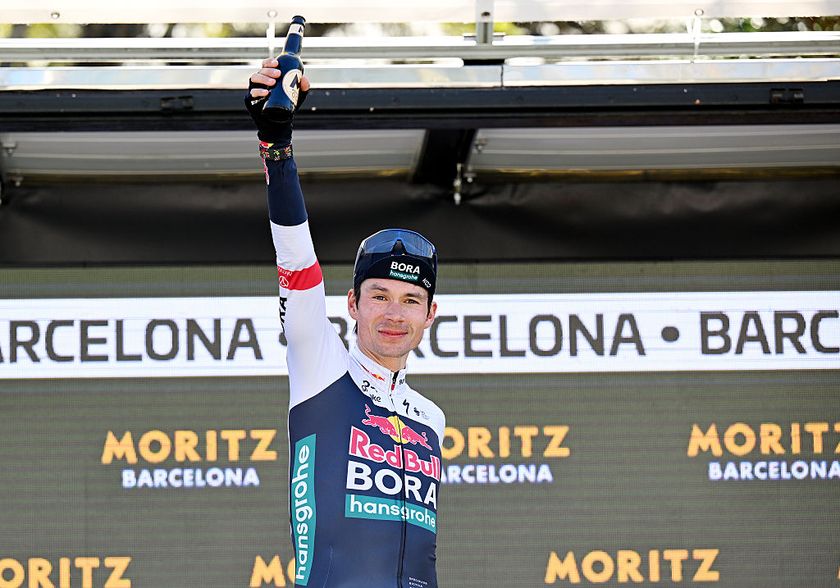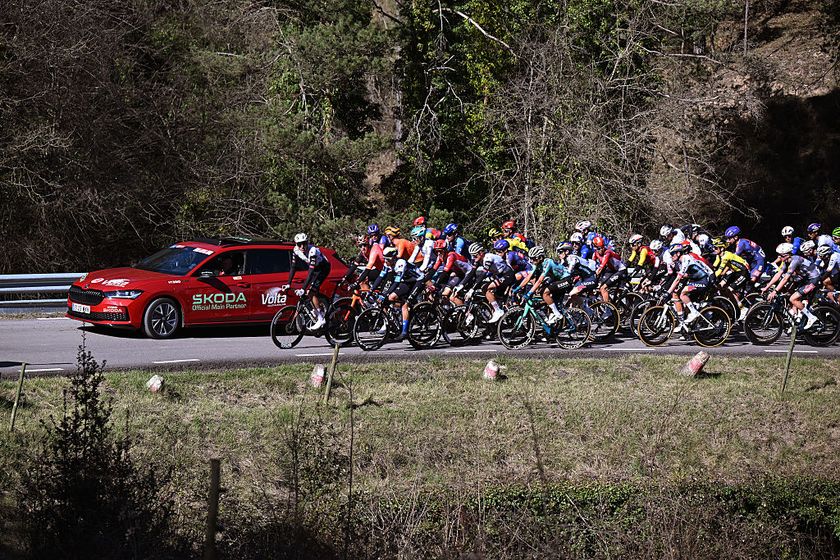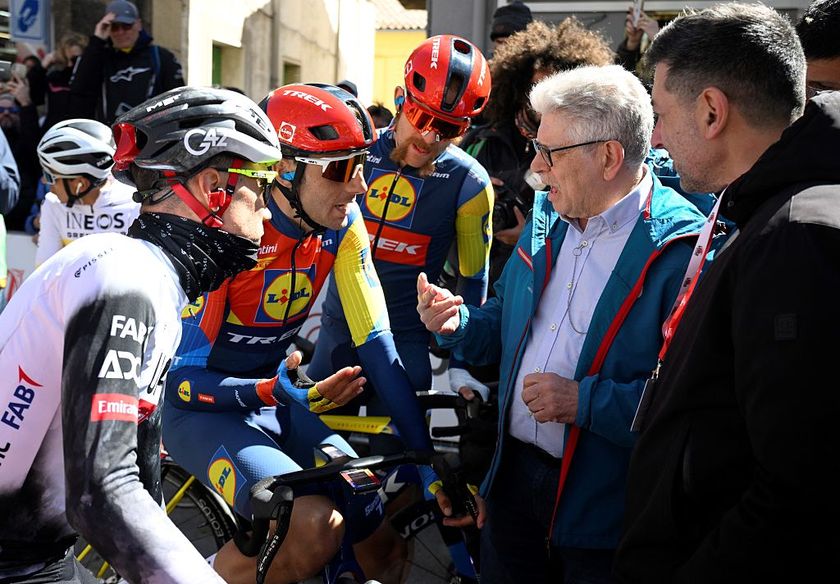Tinkov claims that doping in cycling is over
New owner of Tinkoff-Saxo dismisses Hamilton allegation



From the moment he playfully grabbed a stony-faced Alberto Contador's shoulders as they entered the room, this was the Oleg Tinkov show. The Russian businessman confirmed his purchase of Riis Cycling at a press conference Google's London offices on Monday, an event that suggested life at the remodelled Tinkoff-Saxo will be many things in 2014, none of them dull.
During the initial press conference, Tinkov was keen to present himself as the humble boy made good, talking wistfully of the promising amateur career in Sibera cut short by his conscription into the Soviet army. He outlined how Bjarne Riis, in his reconfigured role as general manager, would still have the final say on transfer policy. "I'm not going to demand certain riders. It's up to him, I never insist," said Tinkov, who flashed a presidential candidate's smile when he posed alongside the rather more contained Contador and Riis during the photo call afterwards.
Speaking to a group of reporters after the live online event had finished, Tinkov was challenged on one of his earlier statements, namely his assertion that "doping is over, cycling has changed." Tapping a message on his mobile phone as he spoke, Tinkov used the jargon of the text message to illustrate his point.
"It's like IMHO, yeah? In my humble opinion. I can't guarantee it but lately I haven't heard anything. Maybe it happens in the small teams, the junior teams where they think it enhances performance, but in the serious peloton, I never hear anything about that," Tinkov said. "Five years ago, it started to finish. I don't believe right now that there's doping in the peloton. I might be naïve but that's what I think."
A sword of Damocles dangles over the head of his general manager Bjarne Riis, however, with the Danish Anti-Doping Agency currently compiling a report on doping in Danish cycling that is understood to pay particular attention to Riis' role as manager of the Saxo Bank team. Former riders Michael Rasmussen, Tyler Hamilton and Jörg Jaksche have all alleged that Riis either encouraged or tolerated doping at his team, and the impending report is believed to have influenced Riis' decision to sell his holding company.
"If there is a decision of the doping committee, licence committee or court, then we have to deal with it and then of course we don't have Bjarne, unfortunately," Tinkov said, tucking away his phone. "But before that, I don't care what they talk about. They're all talking. Don't forget that all of those guys, they want to sell their books. All of those riders who are writing now, they want to sell the books. They want you journalists to write about that, and stupid people to go and buy those books. They're making money and you're helping them make money."
Tyler Hamilton, of course, spent the 2007 season at Tinkov's previous team, Tinkoff Credit Systems, and in "The Secret Race", he alleged that the Russian had allowed doping on the team. Tinkov was dismissive when asked if he had read Hamilton's book.
Get The Leadout Newsletter
The latest race content, interviews, features, reviews and expert buying guides, direct to your inbox!
"Why would I read such a shit? I am mentioned in many, many books, my friend. I am quite famous, so I don't even bother to read them. I have written myself two books, so what? I don't read a lot but when I have the time, I read something proper. But not this sort of bullshit," Tinkov said. "I never read it. I met him like you, one time in my life for five days, and then I never saw him again."
Tinkov couldn't hide his annoyance when the line of questioning continued in the same vein. "Zero tolerance to the doping and let's stop here," he said. "Fuck your doping questions, I don't care about doping, I tell you matters of fact. The fact is that I have been involved with teams for five years with zero doping cases. Zero doping cases. So there is no tolerance. Never, ever have my riders been involved in doping, as an owner or a sponsor. Next question."
Cannondale and Contador
The Russian was happier to talk about the strange sequence of events that saw him announce his departure as Saxo's sub-sponsor in August only to buy the team outright at the beginning of December. In the intervening period, Tinkov had made attempts to purchase the Cannondale team, but eventually found that Riis was ready to do business.
"We were close," he said of his talks with Cannondale in October. "They're good people but the thing is that I wanted to own a team 100 percent but there I would have owned like 40 percent. I would like to be the boss, the owner of the team."
A verbal agreement was reached with Riis in early November but it took the bones of a month for the purchase to be formalised. Tinkov described the sale as "a success story" for Riis, and said that this new structure, where the sponsor owns the team and the manager focuses on sporting matters, ought to be adopted universally. "I believe that cycling has to change. I don't believe in the concept where the sport director is begging for money and doesn't pay enough attention to the riders and sporting side of things," he said.
Tinkov was keen to downplay his potential activity in the transfer market, enigmatically saying that he would like to sign "the usual suspects" but pointing out that they were all already under contract for 2014. He denied that he will be aggressive in his pursuit of new blood for 2015, and appeared keen to depict himself as something of a self-made man and an underdog in comparison to those in command at Katusha, for instance, who effectively took over his original Tinkoff team.
"You can't forget that I'm not an oligarch," Tinkov said. "There are two different Russians: Russians who made money on oil and gas and political connections, and then there are some Russians, a few of them, who made money for themselves. I am from the second generation of Russians, the new generation of Russian businessman. I am efficient, I'm not stupid."
One of the most important tasks for Tinkov will be rebuilding his relationship with leader Alberto Contador, who bore the brunt of the Russian's criticism on Twitter after his fourth place finish at this year's Tour de France. The continued involvement of Riis – at least for now – ought to placate Contador, although the Spaniard's body language at the press conference seemed to betray a certain unease.
"My relations with Alberto are great and they're my relations. There is no problem as I can see and we would like to keep our relations between us. Why would we talk about them publicly?" Tinkov said, adding that Contador was – in his humble opinion, of course – the only rider who can challenge Chris Froome at next year's Tour.
As for that contentious Twitter account, Tinkov jokingly chastised journalists for paying too much attention to his online utterances. "I believe that internet is for porn and Twitter for fun," Tinkov said. "You don't have to take it seriously, it's not my official communication. Something you can laugh and enjoy. It's not serious. That's why I have so many followers, they like when I thrill the people and make them laugh. It's not serious. I am not serious there."

Barry Ryan was Head of Features at Cyclingnews. He has covered professional cycling since 2010, reporting from the Tour de France, Giro d’Italia and events from Argentina to Japan. His writing has appeared in The Independent, Procycling and Cycling Plus. He is the author of The Ascent: Sean Kelly, Stephen Roche and the Rise of Irish Cycling’s Golden Generation, published by Gill Books.
